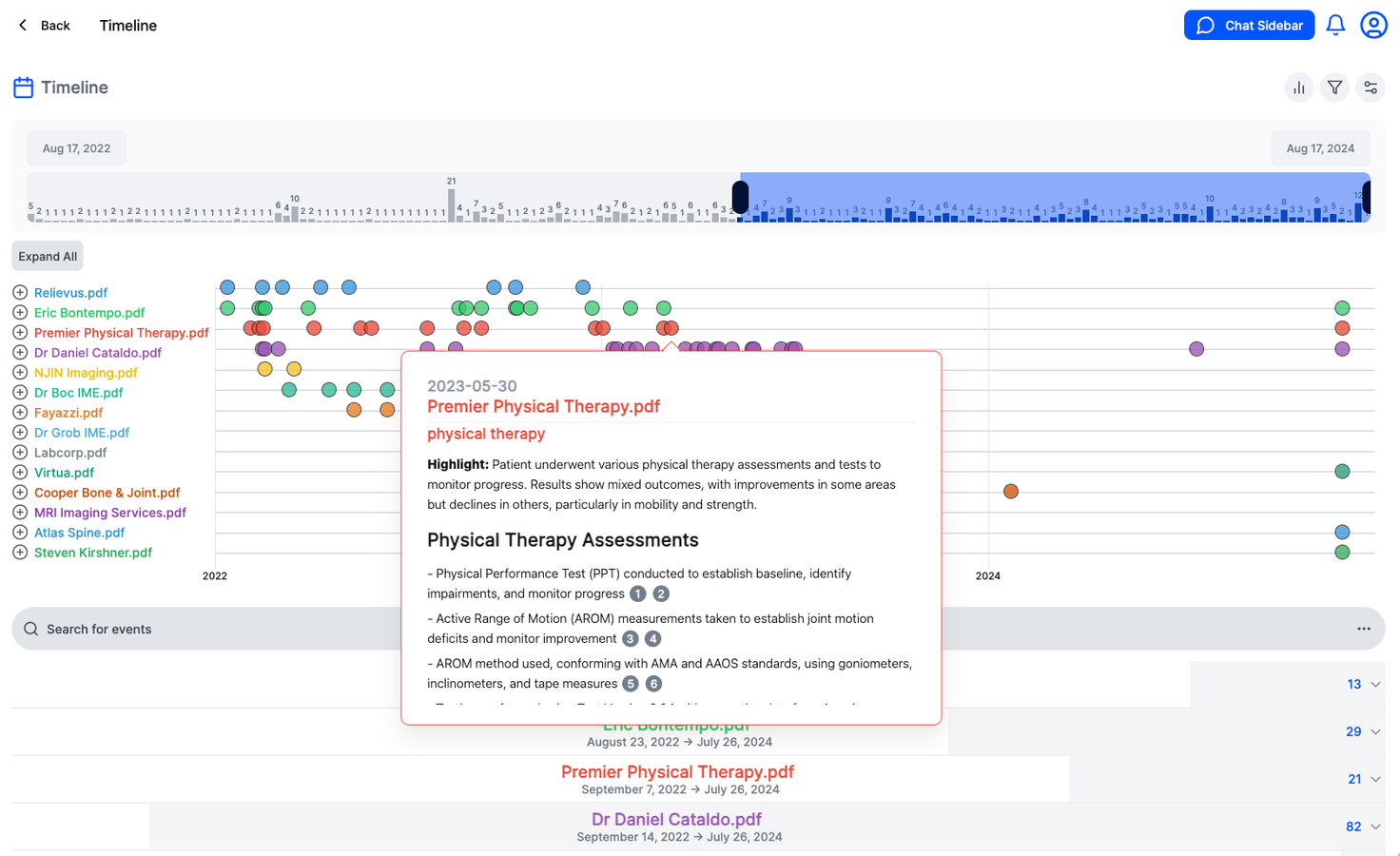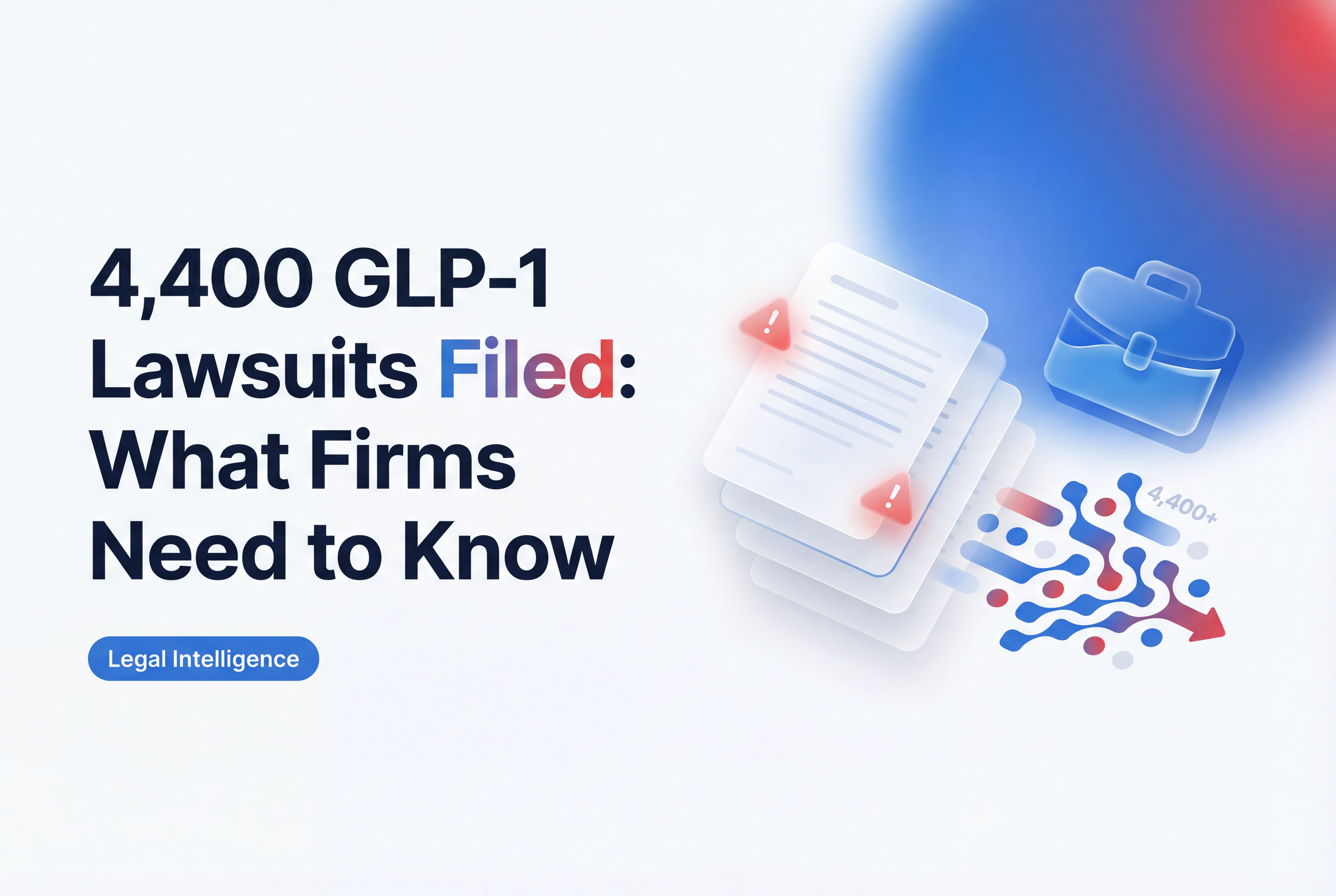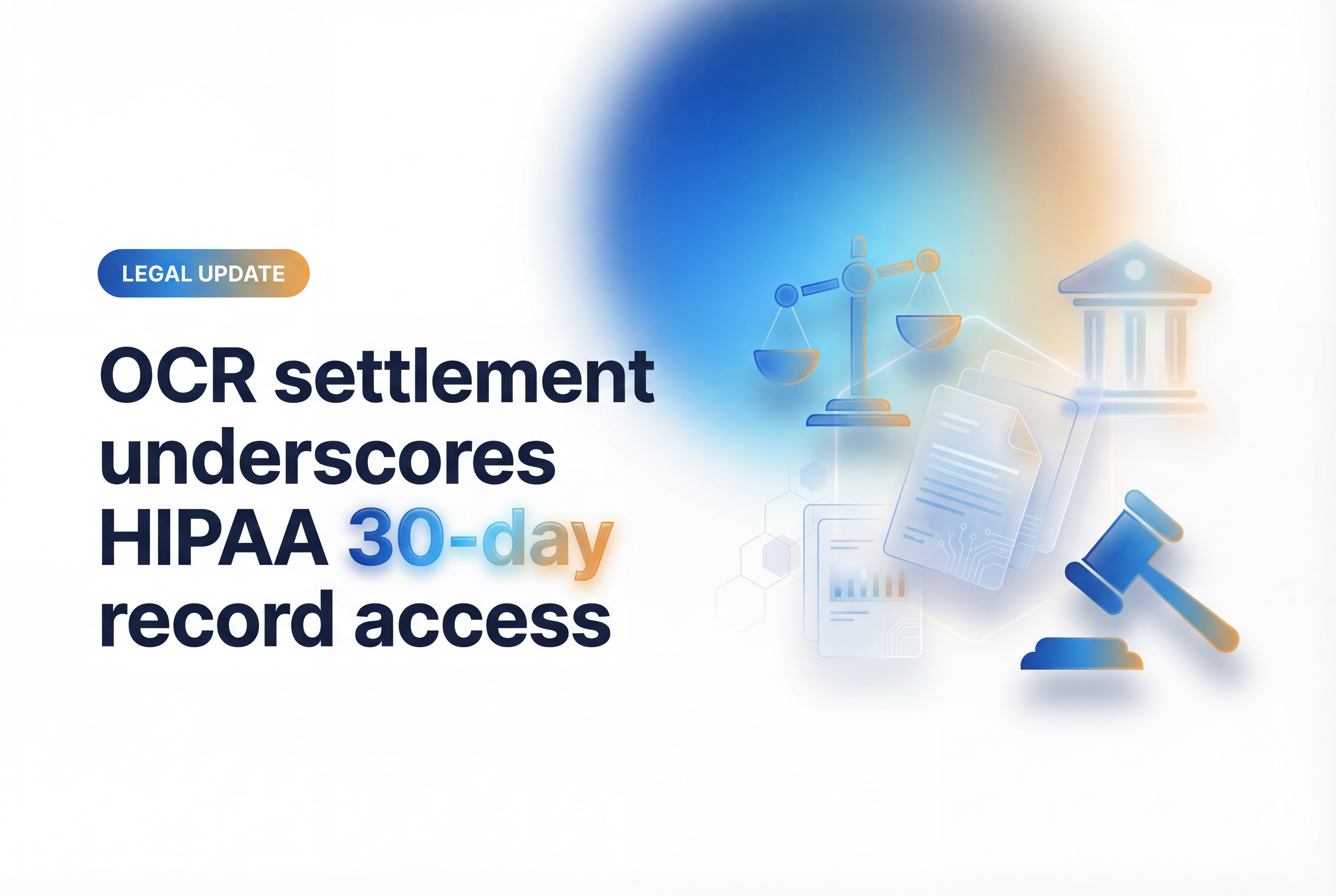Beyond Paralegal Chronologies: Why AI is Transforming Medical Record Review

Shere Saidon
CEO & Founder at LlamaLab
For decades, law firms have relied on paralegals to create medical chronologies - those painstakingly detailed timelines of a client's medical history that form the backbone of personal injury, medical malpractice, and mass tort cases. While this approach has been the industry standard, it's increasingly becoming clear that it's merely a band-aid solution for a much deeper problem: the inefficient, error-prone process of manually analyzing complex medical documentation.
We were spending over 15 hours per case on medical chronologies, and still finding that critical details were being missed. It was frustrating for both our paralegals and attorneys.
Managing PartnerPersonal Injury Law Firm
The Paralegal Chronology Problem
Let's be honest about the current state of medical record review in most law firms:
A paralegal, often with limited medical training, spends hours - sometimes days - poring over hundreds or thousands of pages of medical records. They manually extract dates, treatments, diagnoses, and provider notes, organizing them into a chronological summary that attorneys can quickly review.
Key Points
Essential takeaways from this article
The Technology Revolution in Medical Record Analysis
Modern technology offers a fundamentally different approach to medical record review - one that transforms how attorneys interact with and understand medical documentation.
Google-Like Search Across All Records
Imagine being able to search across thousands of pages of medical records as easily as you search the internet. With advanced AI-powered search capabilities, attorneys can instantly find every mention of a specific:
- Medication or treatment
- Symptom or complaint
- Provider name or facility
- Diagnosis or procedure code
- Date range or specific event
This capability alone transforms how attorneys interact with medical records, making information instantly accessible rather than buried in chronological summaries.
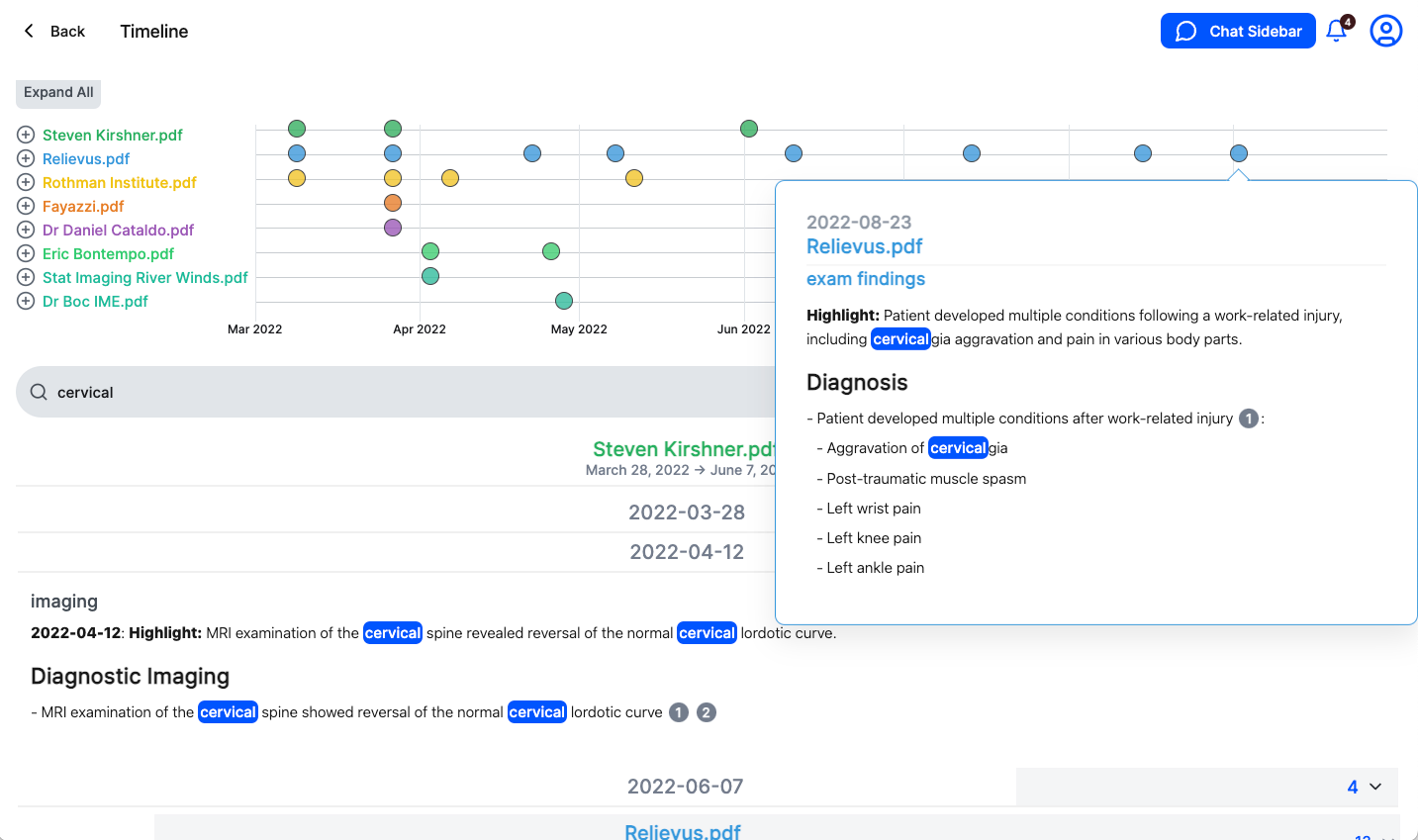
AI Co-Pilot: Ask Questions, Get Instant Answers
Beyond simple search, modern AI systems can function as intelligent co-pilots in the record review process. Instead of scanning through chronologies or searching for specific terms, attorneys can simply ask questions in plain English:
- "When did the patient first complain of back pain?"
- "What medications were prescribed for anxiety between 2018 and 2020?"
- "Did any providers note concerns about potential drug interactions?"
- "Summarize all physical therapy treatments and outcomes."
The AI instantly analyzes the entire record set and provides specific, accurate answers - complete with citations to the source documents.
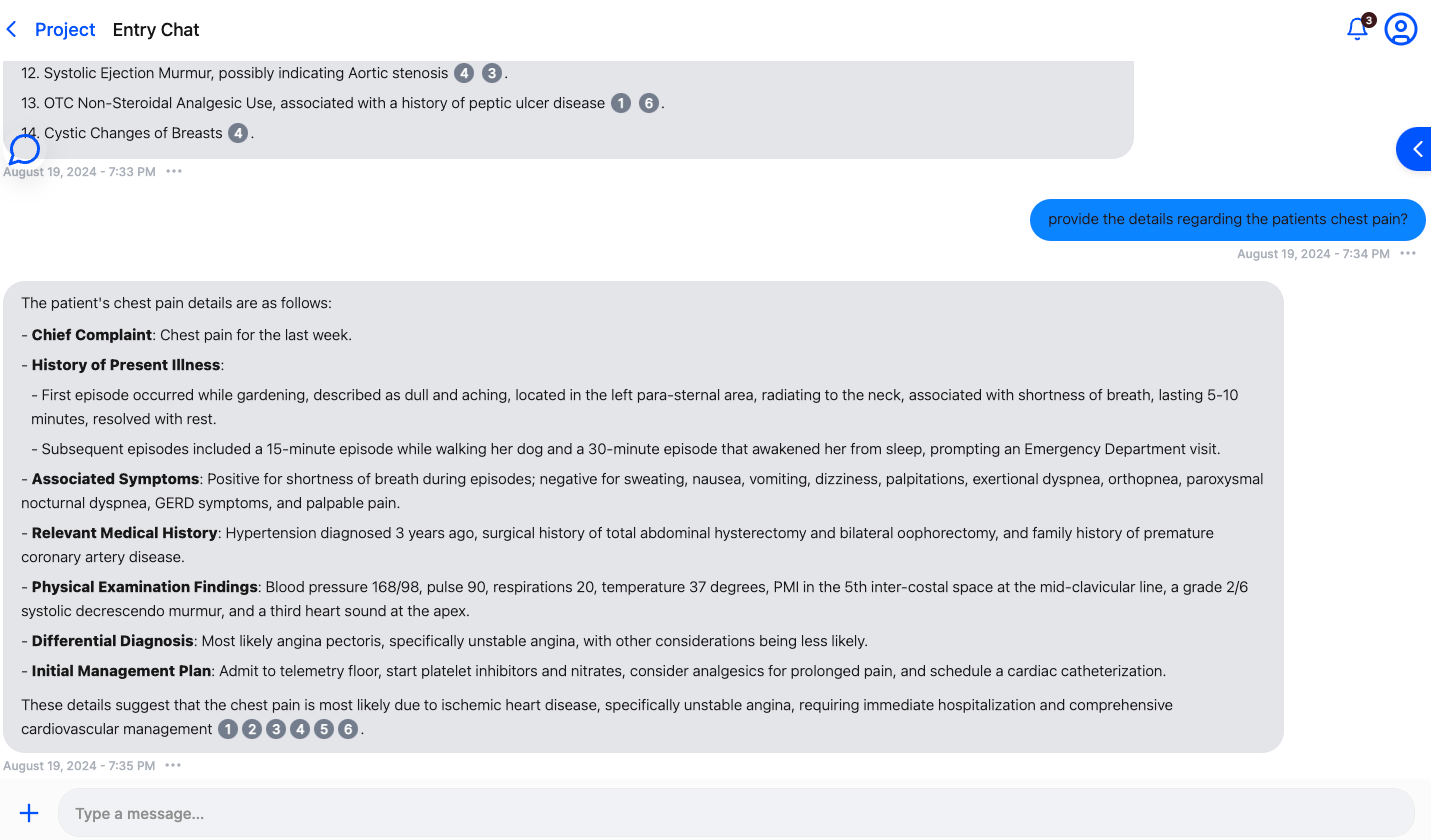
Traceable Citations: Verification at Your Fingertips
Perhaps the most powerful feature of modern medical record analysis systems is the ability to instantly verify any information. Every fact, date, or medical detail is linked directly to its source in the original records. With a single click, attorneys can see the exact document, page, and context from which information was extracted.
This eliminates the verification challenge entirely - no more hunting through records to confirm details or check context. Everything is instantly traceable to its source.
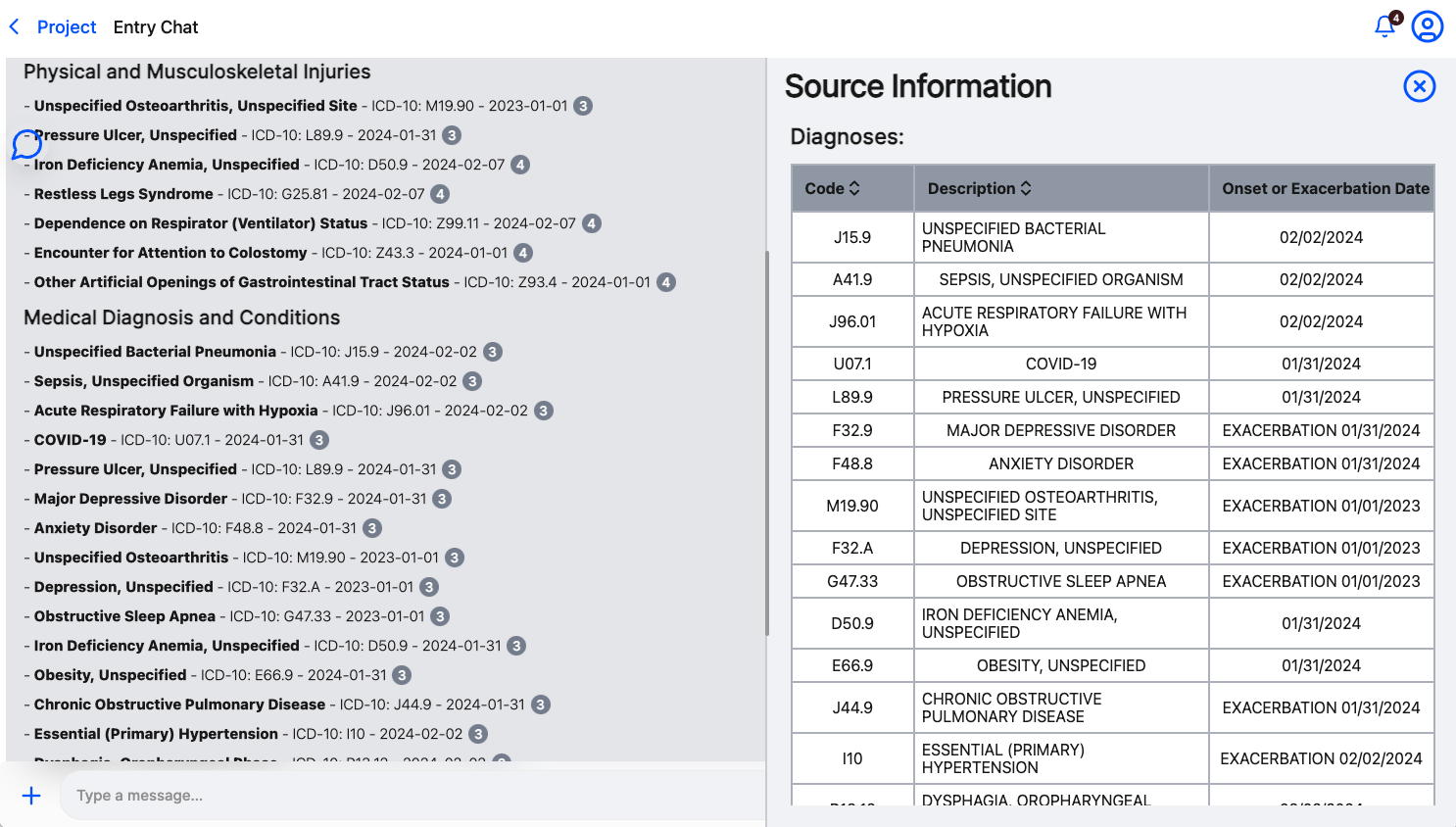
The Real-World Impact
Law firms that have adopted AI-powered medical record analysis report transformative results:
Reduction in time spent reviewing medical records
More case-critical information discovered
Verification with one-click source access
Beyond these metrics, attorneys report qualitative benefits that are equally important:
- Greater confidence in their understanding of medical aspects of cases
- More strategic case preparation with comprehensive medical insights
- Enhanced settlement negotiations backed by complete medical documentation
- Reduced stress and frustration for both attorneys and support staff
The difference is night and day. What used to take days now takes minutes, and we're finding critical details that we would have missed entirely with our old process.
Litigation AttorneyMedical Malpractice Specialist
Moving Beyond the Band-Aid Approach
Traditional paralegal chronologies were always a workaround - a human-powered solution to the challenge of making complex medical information accessible to busy attorneys. They served their purpose in an era before advanced technology, but they represent a fundamentally limited approach.
Today's AI-powered solutions don't just make the chronology process faster or better - they completely reimagine how attorneys interact with medical records. Rather than relying on a static, pre-prepared summary created by someone else, attorneys can directly engage with the full record set through intuitive interfaces that make any information instantly accessible.
This shift has profound implications:
1. From Static to Dynamic
Traditional chronologies are fixed documents that quickly become outdated as new records arrive. Modern systems continuously incorporate new information, ensuring attorneys always have the complete picture.
2. From Limited to Comprehensive
Even the most detailed chronology can only include what the paralegal deemed important. AI-powered systems make the entire record set accessible, ensuring no detail is overlooked.
3. From Delayed to Immediate
Traditional chronologies take days or weeks to prepare, delaying case progress. Modern systems provide instant access to insights, accelerating the entire case lifecycle.
4. From Isolated to Integrated
Chronologies typically exist as separate documents from the original records. Modern systems integrate analysis capabilities directly with the source documents, creating a seamless experience.
The Future of Medical Record Analysis
As we look ahead, it's clear that the traditional paralegal chronology is rapidly becoming obsolete. Forward-thinking law firms are already embracing AI-powered alternatives that deliver superior results in a fraction of the time.
This doesn't mean paralegals are becoming obsolete - quite the opposite. By freeing paralegals from the tedious task of manual chronology creation, these technologies allow them to focus on higher-value activities that better utilize their skills and expertise. The result is a more efficient, effective legal team that delivers better outcomes for clients.
Traditional Approach vs LlamaLab Solution
Traditional Approach
Time-Intensive Process
8-10 hours of paralegal time per case spent creating basic chronologies.
Limited Searchability
Static documents that can't be easily searched or filtered.
Missing Information
Up to 37% of case-critical details overlooked in manual review.
Verification Challenges
Time-consuming process to verify information in source records.
Hidden & Unpredictable Costs
Per-page fees, rush charges, and surprise bills that blow up your budget
LlamaLab Solution
Instant Analysis
AI processes thousands of pages in minutes, not hours or days.
Google-Like Search
Find any information across all records with simple search queries.
AI Co-Pilot
Ask questions in plain English and get instant, accurate answers.
One-Click Verification
Every fact linked directly to its source in the original records.
Flat Transparent, Risk-free Pricing
1 flat fee covers all costs — only pay full price for cases that authorize
Conclusion
The shift from paralegal chronologies to AI-powered medical record analysis represents more than just an incremental improvement in efficiency. It's a fundamental transformation in how attorneys interact with and understand medical information - one that delivers better results in less time with greater confidence.
As with any technological advancement, early adopters gain a significant competitive advantage. Firms that embrace these new capabilities can handle more cases, develop stronger arguments, negotiate better settlements, and deliver superior client service - all while reducing the administrative burden on their teams.
The future of medical record analysis is here, and it's powered by AI, not paralegals with highlighters and spreadsheets.
Experience the Future of Medical Record Analysis
See how LlamaLab's AI-powered platform can transform your approach to medical records.
Ready to move beyond paralegal chronologies? Contact us to discover how LlamaLab's advanced technology can transform your medical record review process.
Stay Updated with Latest Insights
Get the latest articles about medical record retrieval and legal tech delivered to your inbox.
